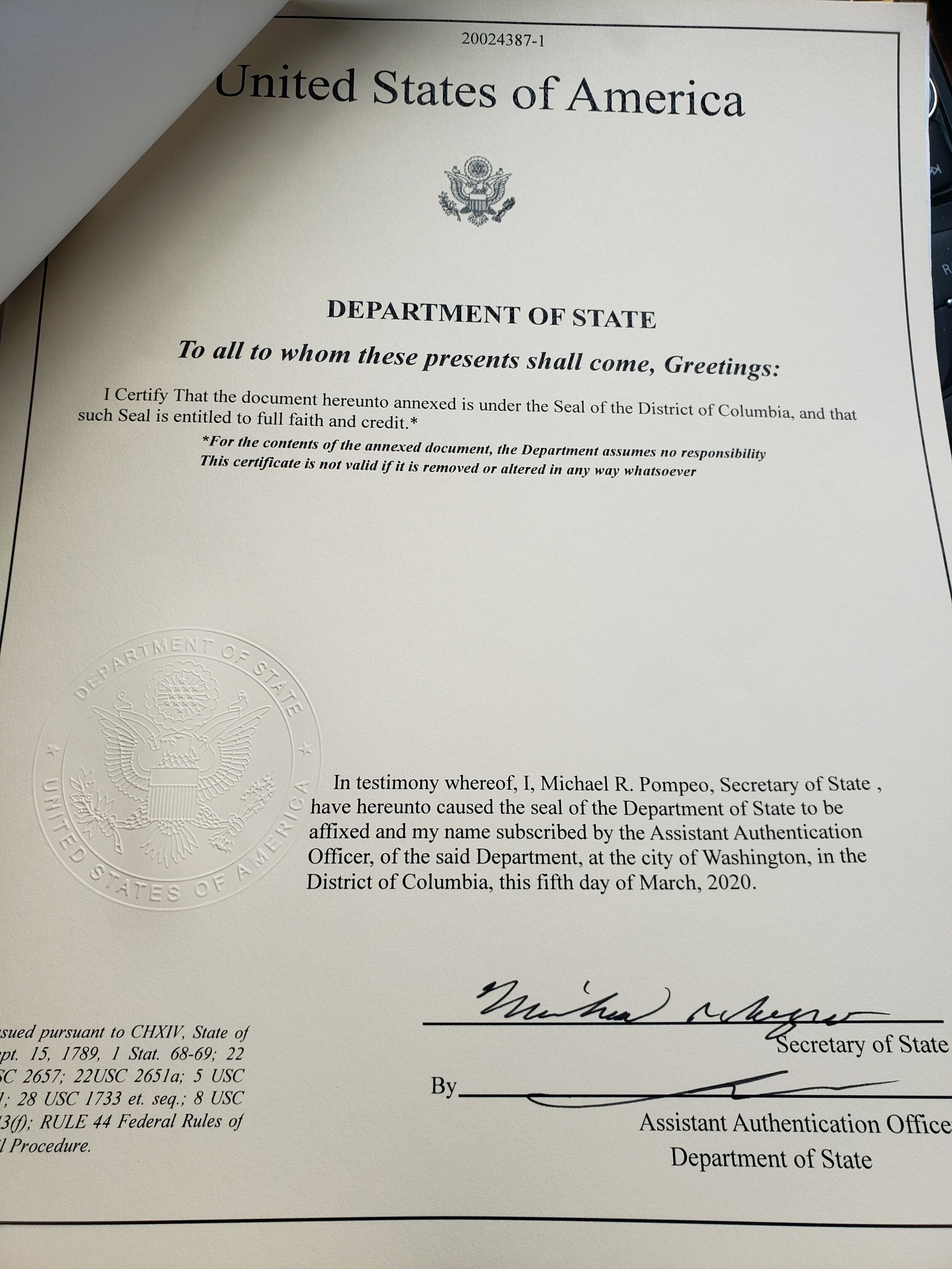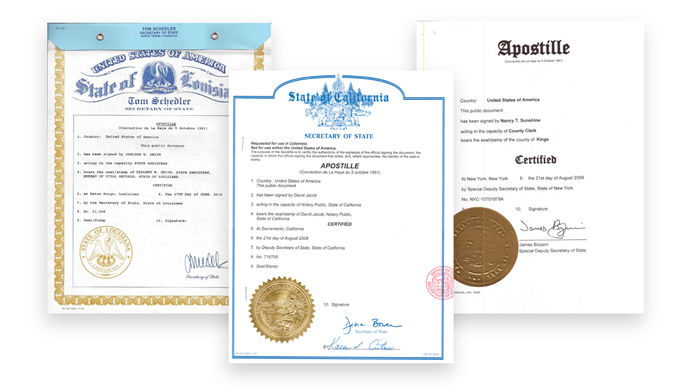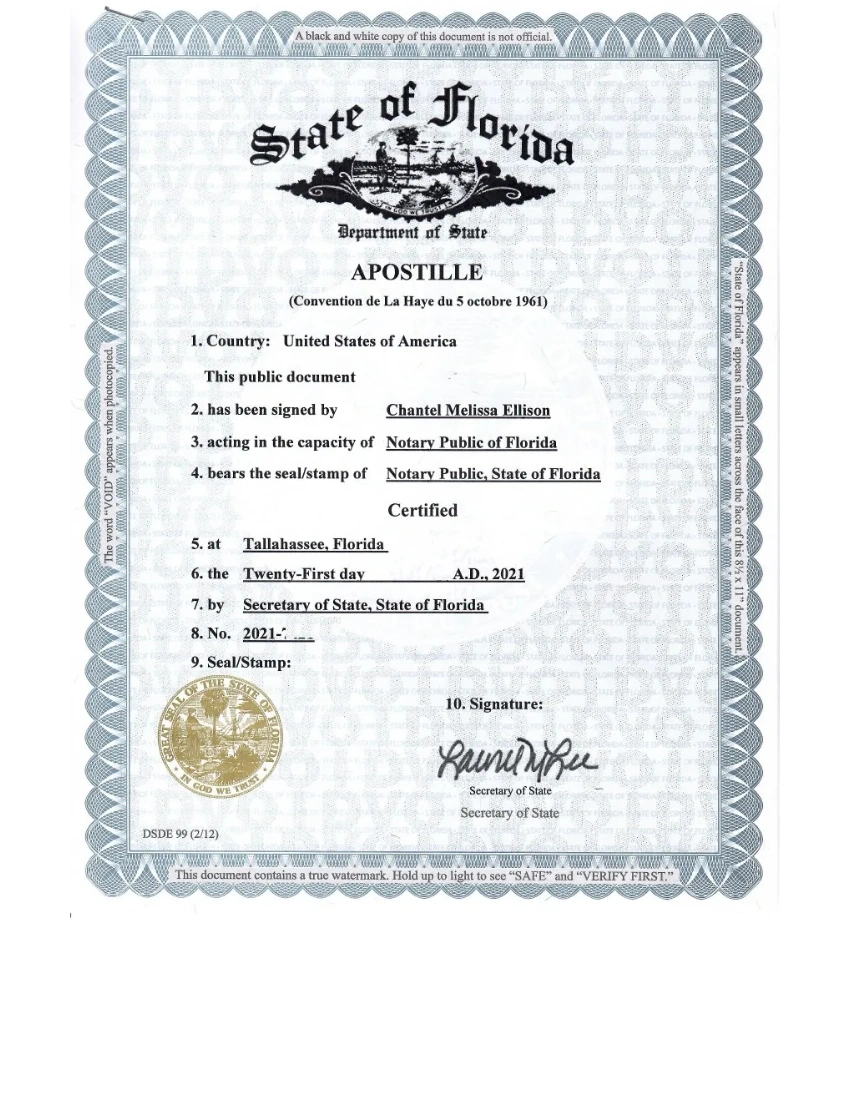Trusted Apostille Providers in Houston, Texas - Quick Turnaround
Trusted Apostille Providers in Houston, Texas - Quick Turnaround
Blog Article
Diving Into the Reasons Behind the Mandatory Need of Apostille Accreditation for Legal Documents
In the world of legal documents, the obligatory requirement of apostille accreditation has actually come to be a necessary facet that substantially impacts the credibility and recognition of lawful documents on a global scale. Comprehending the rationale behind this necessity entails diving right into the intricate internet of legal complexities, historical precedents, and global arrangements that highlight the relevance of apostille qualification in today's interconnected world. By exploring the underlying factors behind this widespread requirement, a clearer image emerges of why this seemingly administrative process holds such immense significance for individuals, organizations, and federal governments alike.
Historic Advancement of Apostille Qualification
How did the idea of apostille accreditation progress gradually to end up being a vital part of worldwide file recognition? The historical advancement of apostille accreditation dates back to the early 20th century. The need for a streamlined technique of verifying files for use across boundaries became noticeable as international trade and traveling boosted. In response to this demand, the Hague Seminar on Exclusive International Regulation introduced the Apostille Convention in 1961. This worldwide treaty developed a structured procedure for licensing the credibility of documents to be identified in member countries.
At first taken on by a couple of European nations, the Apostille Convention slowly acquired worldwide acceptance because of its effectiveness and efficiency in validating the legitimacy of official papers. For many years, the convention's reach expanded as even more countries signed up with, recognizing the apostille as an universally approved type of document verification. Today, apostille accreditation has actually become a basic need for confirming legal documents in international purchases, guaranteeing smooth communication and lawful process between countries.
Simplifying International Record Legalisation
The streamlining of global file legalization procedures has actually substantially boosted effectiveness in cross-border transactions. Streamlining the procedure of legislating documents for worldwide usage has actually become essential in helping with swift and smooth transactions between countries. One of the vital systems that have actually added to this simplification is the adoption of the Apostille Convention, which provides a standard technique for confirming the authenticity of documents across getting involved nations.
By adhering to the Apostille requirements, countries consent to identify each other's public documents as valid without the requirement for more legalization. This removes the frequently cumbersome and prolonged process of several authentications by various authorities, saving time and resources for people and services taken part in worldwide activities.

Making Sure Paper Authenticity and Legitimacy
To make sure the credibility and credibility of legal documents in international purchases, stringent verification procedures are important. By needing apostille qualification for lawful documents, authorities aim to authenticate the beginning of documents and confirm the trademarks of people entailed.
Moreover, verifying the authenticity of legal records via apostille certification improves trust and confidence amongst events engaging in worldwide purchases. Eventually, by supporting stringent confirmation criteria, apostille qualification contributes to my sources a much more protected and clear global legal framework.

Facilitating Cross-Border Legal Acknowledgment
In the world of worldwide deals, the apostille accreditation not only makes sure the authenticity and legitimacy of lawful files but likewise plays a pivotal role in promoting cross-border lawful acknowledgment (Houston Apostille). When legal papers birth an apostille certification, they are readily approved by international authorities without the demand for more confirmation. This streamlined procedure speeds up the acknowledgment of documents in different countries, promoting efficiency and lowering administrative difficulties in legal matters that transcend national boundaries
Helping with cross-border legal recognition through apostille accreditation fosters trust fund and self-confidence in the authenticity of documents traded in between nations. By sticking to the requirements set forth by the Apostille straight from the source Convention, nations agree to recognize the apostille seals attached to records from other member countries, hence simplifying the process of legal recognition throughout boundaries.
Compliance With International Treaty Standards
Conformity with global treaty standards is crucial for ensuring the consistent application of legal policies throughout participating nations. The Apostille Convention, developed in 1961, lays out the requirements for the approval of public papers amongst participant nations. By sticking to the criteria stated in this treaty, countries commit to recognizing the legitimacy of each various other's certification without the demand for further verification - Houston Apostille. This mutual approval improves the procedure of cross-border file recognition, promoting performance and decreasing bureaucratic difficulties.
The Apostille accreditation, as mandated by the treaty, acts as a guarantee of authenticity for documents such as birth certifications, marital relationship licenses, court judgments, and notarized actions. This standardized strategy assists protect against scams and guarantees that legal papers stemming from one member country are easily accepted in one more. Moreover, by complying with international treaty standards, countries show their dedication to promoting the principles of transparency, depend on, and participation in legal matters on a global range.
Final Thought

In the world of lawful documentation, the obligatory need of apostille accreditation has ended up being an essential aspect that significantly influences the credibility and acknowledgment of legal documents on a global scale. Today, apostille qualification has become a common requirement for confirming legal documents in worldwide purchases, making sure smooth communication our website and lawful procedures between nations.
Furthermore, validating the authenticity of lawful documents with apostille certification improves trust fund and confidence amongst parties involving in global purchases.In the realm of international purchases, the apostille certification not only makes sure the credibility and credibility of lawful records however also plays a crucial duty in helping with cross-border legal recognition. By adhering to the criteria established forth by the Apostille Convention, countries concur to honor the apostille seals affixed to documents from various other participant nations, hence simplifying the procedure of legal recognition across borders.
Report this page